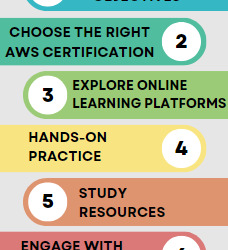#Cloud Infrastructure Service Market Opportunity
Text
1. **Convergence**:
- **Definition**: Convergence in ICT refers to the integration of multiple technologies, platforms, or services into a single, cohesive system.
- **Example**: Smartphones that combine telephone, internet browsing, email, GPS, and multimedia functions.
- **Impact**: It leads to more versatile devices and systems, simplifying user experience and increasing efficiency by reducing the need for multiple, separate devices.
2. **Social Media**:
- **Definition**: Social media consists of online platforms that facilitate the creation, sharing, and interaction with content and user-generated content in virtual communities.
- **Example**: Facebook, Twitter, Instagram, LinkedIn.
- **Impact**: Social media has revolutionized communication and information sharing, influencing personal interactions, marketing strategies, public relations, and even political campaigns.
3. **Mobile Technologies**:
- **Definition**: Mobile technologies encompass portable devices and the infrastructure that enables wireless communication and internet access.
- **Example**: Smartphones, tablets, wearable devices like smartwatches.
- **Impact**: These technologies enable users to access information, communicate, and perform various tasks from virtually anywhere, enhancing connectivity and productivity.
4. **Assistive Media**:
- **Definition**: Assistive media includes tools and technologies designed to help individuals with disabilities access and use ICT effectively.
- **Example**: Screen readers for the visually impaired, voice recognition software, alternative input devices.
- **Impact**: Assistive media ensures accessibility and inclusivity, allowing people with disabilities to participate fully in the digital world, improving their quality of life and opportunities for education and employment.
5. **Cloud Computing**:
- **Definition**: Cloud computing involves delivering computing services—such as storage, processing power, and applications—over the internet, rather than from local servers or personal devices.
- **Example**: Google Drive, Microsoft Azure, Amazon Web Services (AWS).
- **Impact**: Cloud computing offers scalable, flexible, and cost-effective resources, enhancing collaboration, data accessibility, and operational efficiency for both individuals and organizations.
ROSIE MAE,RONDINA,SAIDUNA
2 notes
·
View notes
Text
In the era of digital transformation, cloud computing has emerged as a pivotal technology, reshaping the way businesses operate and innovate. Pune, a burgeoning IT and business hub, has seen a significant surge in the adoption of cloud services, with companies seeking to enhance their efficiency, scalability, and agility. Zip Crest stands at the forefront of this revolution, offering comprehensive cloud computing services tailored to meet the diverse needs of businesses in Pune
The Importance of Cloud Computing
Cloud computing enables organizations to leverage a network of remote servers hosted on the internet to store, manage, and process data, rather than relying on local servers or personal computers. This shift provides several key benefits:
- Scalability: Businesses can easily scale their operations up or down based on demand, without the need for significant capital investment in hardware.
- Cost Efficiency: Cloud services operate on a pay-as-you-go model, reducing the need for substantial upfront investment and lowering overall IT costs.
- Accessibility: Cloud computing allows access to data and applications from anywhere, at any time, fostering remote work and collaboration.
- Security: Leading cloud service providers offer robust security measures, including encryption, access controls, and regular security audits, to protect sensitive data.
Zip Crest: Leading Cloud Computing Services in Pune
Zip Crest is committed to empowering businesses in Pune with cutting-edge cloud computing solutions. Our services are designed to address the unique challenges and opportunities that come with the digital age. Here’s how we can transform your business operations:
1. Cloud Strategy and Consulting:
At Zip Crest, we begin by understanding your business objectives and IT infrastructure. Our experts then craft a bespoke cloud strategy that aligns with your goals, ensuring a seamless transition to the cloud and maximizing the benefits of cloud technology.
2. Infrastructure as a Service (IaaS):
Our IaaS offerings provide businesses with virtualized computing resources over the internet. This includes virtual machines, storage, and networking capabilities, allowing you to build and manage your IT infrastructure without the need for physical hardware.
3. Platform as a Service (PaaS):
With our PaaS solutions, developers can build, deploy, and manage applications without worrying about the underlying infrastructure. This accelerates development cycles, enhances productivity, and reduces time to market.
4. Software as a Service (SaaS):
Zip Crest offers a range of SaaS applications that can streamline your business processes. From customer relationship management (CRM) to enterprise resource planning (ERP), our cloud-based software solutions are designed to improve efficiency and drive growth.
5. Cloud Migration Services:
Transitioning to the cloud can be complex. Our cloud migration services ensure a smooth and secure migration of your applications, data, and workloads to the cloud, minimizing downtime and disruption to your business operations.
6. Managed Cloud Services:
Once your infrastructure is on the cloud, ongoing management is crucial to ensure optimal performance and security. Our managed cloud services provide continuous monitoring, maintenance, and support, allowing you to focus on your core business activities.

Why Choose Zip Crest?
Choosing Zip Crest for your cloud computing needs comes with several advantages:
- Expertise: Our team of certified cloud professionals brings extensive experience and deep knowledge of cloud technologies.
- Customized Solutions: We understand that every business is unique. Our solutions are tailored to meet your specific requirements and objectives.
-Proactive Support: We offer 24/7 support to ensure that your cloud infrastructure is always running smoothly and efficiently.
- Security Focus: Security is at the core of our services. We implement robust security measures to protect your data and applications from threats.
Conclusion
In conclusion, cloud computing is transforming the way businesses operate, offering unprecedented levels of flexibility, scalability, and efficiency. Zip Crest is dedicated to helping businesses in Pune harness the power of the cloud to achieve their goals and stay competitive in today’s fast-paced digital landscape. By partnering with Zip Crest, you can ensure that your business is well-equipped to navigate the complexities of cloud computing and reap its many benefits. Embrace the future of technology with Zip Crest and revolutionize your business operations with our top-tier cloud computing services.
Get In Touch
Website: https://zipcrest.com/
Address: 13, 4th Floor, A Building City Vista Office Park Fountain Road Karadi Pune Maharashtra 411014
Email: [email protected] / [email protected]
Call: +912049330928 / 9763702645 / 7020684182
2 notes
·
View notes
Text
Top GCP Certification For Beginners To Consider In 2024

In 2024, Google Cloud Platform (GCP) continues to dominate the cloud computing landscape with its robust set of services and solutions. For beginners looking to establish a career in cloud technology, obtaining GCP certifications is a strategic move. These certifications validate expertise in various GCP services, enhancing credibility and opening doors to lucrative career opportunities.
Why Choose GCP Certifications?
Career Advantages
GCP certifications are recognized globally and are highly valued by employers across industries. They validate skills in cloud architecture, data engineering, machine learning, and more, making certified professionals indispensable in today’s digital economy. With cloud adoption accelerating, companies are actively seeking GCP-certified professionals to drive their digital transformation initiatives.
Comprehensive Certification Options
Google offers a range of GCP certifications tailored to different job roles and skill levels:
1. Associate Cloud Engineer
The Associate Cloud Engineer certification is ideal for beginners aiming to demonstrate proficiency in deploying applications, monitoring operations, and managing enterprise solutions on GCP. It establishes a solid foundation in cloud architecture and infrastructure.
2. Professional Cloud Architect
For professionals aspiring to design and deploy dynamic and scalable GCP solutions, the Professional Cloud Architect certification is paramount. It covers advanced concepts such as security, compliance, and high availability.
3. Data Engineer
The Data Engineer certification focuses on designing and building data processing systems on GCP. It equips individuals with skills in data transformation, loading, and processing that are crucial in today’s data-driven enterprises.
4. Cloud Developer
The Cloud Developer certification validates proficiency in designing, building, and deploying applications on GCP. It emphasizes skills in application development, debugging, and performance optimization using Google technologies.
Preparation Tips for GCP Certification Exams
Achieving GCP certifications requires diligent preparation:
– Hands-on Experience
Practice using GCP services through labs and real-world scenarios to familiarize yourself with the platform’s features and functionalities.
– Official Study Materials
Utilize Google’s official training resources, including online courses, practice exams, and documentation, to gain comprehensive knowledge of exam objectives.
– Community Support
Engage with the GCP community through forums, study groups, and social media channels to exchange insights, tips, and best practices with fellow learners and professionals.
Career Growth and Opportunities
Earning GCP certifications not only enhances technical skills but also opens doors to a wide array of career opportunities:
High-demand Skills: Companies seek GCP-certified professionals for roles such as cloud architect, solutions engineer, and data analyst, offering competitive salaries and career advancement prospects.
Industry Recognition: GCP certifications validate expertise in cutting-edge cloud technologies, boosting credibility and marketability in the job market.
Continuous Learning: GCP certifications require ongoing learning and skill development, keeping professionals abreast of industry trends and innovations.
Conclusion
In conclusion, GCP certifications are indispensable for beginners looking to establish a successful career in cloud computing. Whether aiming to become an Associate Cloud Engineer, Professional Cloud Architect, Data Engineer, or Cloud Developer, these certifications validate expertise and open doors to lucrative career opportunities in 2024 and beyond.
2 notes
·
View notes
Text
Level up your cloud skills with this AWS course: The ultimate guide to mastering Amazon Web Services!
Are you fascinated by the world of cloud computing? Do you want to enhance your skills and become a proficient Amazon Web Services (AWS) professional? Look no further! This comprehensive guide will walk you through the essential aspects of AWS education and training, providing you with the tools you need to excel in this rapidly evolving field. Whether you are a novice starting from scratch or an experienced IT professional aiming for career advancement, this AWS course will equip you with the knowledge and expertise to navigate the cloud with confidence.

Education: Building Blocks for Success
Understanding the Basics of Cloud Computing
Before diving into the intricacies of Amazon Web Services, it is crucial to comprehend the fundamentals of cloud computing. Explore the concept of virtualization, where physical resources are abstracted into virtual instances, allowing for greater efficiency, scalability, and flexibility. Familiarize yourself with key terms such as Infrastructure as a Service (IaaS), Platform as a Service (PaaS), and Software as a Service (SaaS). By understanding these building blocks, you will be prepared to harness the full power of AWS.
Navigating the AWS Management Console
The AWS Management Console is your gateway to the vast array of services provided by Amazon Web Services. Acquaint yourself with this user-friendly interface as we walk you through the various components and functionalities it offers. From launching virtual servers to configuring security settings, you will gain a solid foundation in managing AWS resources effectively.
Essential AWS Services to Master
AWS boasts a vast ecosystem of services, each designed to address specific computing needs. We will explore some of the core services that form the backbone of AWS, including Amazon Elastic Compute Cloud (EC2), Amazon Simple Storage Service (S3), Amazon Relational Database Service (RDS), and Amazon Lambda. Delve into the intricacies of these services and discover how they can revolutionize your cloud-based projects.
Guide to Start AWS Training
Choosing the Right Training Path
Embarking on your AWS training journey requires careful consideration of your individual goals and learning preferences. Evaluate the various training options available, such as self-paced online courses, instructor-led virtual classrooms, or hands-on workshops. Analyze your resources, time constraints, and preferred learning style to select the training path that aligns best with your needs.
Structured Learning Approach
Mastering AWS necessitates a systematic and well-structured approach. Discover the importance of laying a strong foundation by beginning with the AWS Certified Cloud Practitioner exam. From there, progress to more specialized certifications such as AWS Certified Solutions Architect, AWS Certified Developer, or AWS Certified SysOps Administrator. Each certification builds upon the previous one, creating a comprehensive knowledge base that will set you apart in this competitive industry.
Hands-On Experience and Real-World Projects
Theory alone is insufficient when it comes to mastering AWS. Develop your practical skills by engaging in hands-on labs and real-world projects that simulate the challenges you are likely to encounter in the field. Dive into deploying applications, configuring scalable infrastructure, and troubleshooting common issues. By actively applying your knowledge, you will solidify your understanding and gain invaluable experience.

Placement: Unlocking Opportunities
Leveraging AWS Certification in the Job Market
AWS certifications have emerged as a gold standard in the realm of cloud computing. Employers actively seek professionals who possess the skills and credentials to navigate and optimize AWS environments. Discover how an AWS certification can significantly enhance your employability, propel your career trajectory, and open doors to exciting job opportunities in a wide range of industries.
Showcasing your AWS Expertise
Once you have acquired the necessary skills and certifications, it is essential to effectively showcase your AWS expertise. Craft a captivating resume highlighting your AWS experiences and projects. Create a strong online presence through platforms like LinkedIn and GitHub, demonstrating your proficiency to potential employers. Actively participate in AWS forums and communities, exchanging knowledge and insights with fellow professionals and building a robust network.
Continuous Learning and Growth
AWS is a rapidly evolving platform, constantly introducing new services, features, and updates. Stay ahead of the curve by fostering a mindset of continuous learning and growth. Engage in ongoing professional development, attend AWS conferences and webinars, and subscribe to relevant industry publications. By embracing a culture of continuous improvement, you will remain at the forefront of AWS innovation and unlock limitless possibilities for advancement.
Embarking on the journey to mastering AWS Course at ACTE institute can be both exciting and challenging. However, armed with comprehensive education, a well-structured training approach, and a strategic placement strategy, you can level up your cloud skills and unlock a world of opportunities. Start your AWS training today, and transcend the realms of cloud computing like never before!
9 notes
·
View notes
Text
Microsoft's Presence in Iran: Balancing Opportunity and Constraints
Introduction: Microsoft Iran Corporation, the global technology giant, has long been a prominent player in the world of computing and software development. With a presence in numerous countries worldwide, its operations have often been subject to geopolitical dynamics, leading to complex situations in regions like the Middle East. One such country of interest is Iran, a nation marked by its rich cultural heritage, economic potential, and complex political landscape. In this article, we delve into Microsoft's engagement with Iran, exploring the opportunities it presents, the challenges it faces, and the broader implications of its involvement in the country.

Historical Context: To understand Microsoft Iran current stance towards Iran, it's essential to consider the historical backdrop. The relationship between the United States and Iran has been characterized by periods of tension and diplomatic strains, largely stemming from political differences and nuclear proliferation concerns. Sanctions imposed on Iran by the U.S. and other Western nations have significantly impacted international trade and business activities in the country, including those of technology companies like Microsoft.
Opportunities in Iran: Despite the challenges posed by sanctions and political uncertainties, Microsoft Iran offers significant opportunities for Microsoft. The country boasts a large and youthful population with a growing appetite for technology and innovation. Iran's thriving startup ecosystem, coupled with a burgeoning middle class, presents a lucrative market for software products and services. Furthermore, Iran's strategic location at the crossroads of the Middle East provides Microsoft with a foothold in a region ripe for digital transformation.
Microsoft's Engagement: Microsoft's approach to Iran has been cautious yet strategic. While complying with international sanctions, the company has sought to navigate the regulatory landscape carefully. Microsoft does not have a physical presence or direct operations in Iran, but its products and services are accessible to Iranian users through authorized channels. This indirect engagement allows Microsoft Iran to tap into the Iranian market while adhering to legal and compliance requirements.
Cloud Computing and Digital Transformation: One area where Microsoft has made significant inroads in Iran is cloud computing. Through its Azure platform, Microsoft provides Iranian businesses with access to scalable and secure cloud infrastructure, enabling them to modernize their IT systems and drive digital innovation. Cloud computing has the potential to revolutionize various sectors in Iran, including finance, healthcare, and education, by enhancing efficiency, scalability, and accessibility.
Education and Skill Development: Microsoft's involvement in Iran extends beyond commercial interests. The company has actively invested in education and skill development initiatives to empower the Iranian youth with digital literacy and technical expertise. Programs such as Microsoft Imagine Academy and Microsoft Learn provide Iranians with access to online resources, training courses, and certification programs, equipping them with the skills needed to thrive in the digital economy.
Challenges and Constraints: Despite the opportunities, Microsoft faces several challenges in Iran. The uncertain geopolitical climate, coupled with ever-changing regulatory requirements, creates a volatile operating environment. Moreover, the limitations imposed by sanctions, particularly in terms of financial transactions and export controls, pose logistical hurdles for companies like Microsoft seeking to do business in Iran. Additionally, concerns regarding intellectual property rights and cybersecurity remain pertinent in the Iranian context.
Human Rights and Ethical Considerations: Microsoft's engagement with Iran also raises important ethical considerations, particularly concerning human rights. The Iranian government's track record of censorship, surveillance, and repression has drawn criticism from international human rights organizations. Microsoft Iran must navigate these concerns carefully, ensuring that its products and services are not used to facilitate human rights abuses or undermine individual freedoms. Upholding ethical standards and promoting responsible business practices is crucial for Microsoft's reputation and credibility in Iran and beyond.
Future Outlook: Looking ahead, Microsoft's involvement in Iran is likely to evolve in response to shifting geopolitical dynamics and regulatory changes. The company's commitment to innovation and inclusive growth presents opportunities to address societal challenges and foster economic development in Iran. By leveraging technology as a force for good, Microsoft can contribute to building a more resilient and prosperous future for the people of Iran while upholding its values and principles.
Conclusion: Microsoft Iran engagement with Iran reflects the complexities of operating in a geopolitically sensitive region. While navigating regulatory constraints and ethical considerations, Microsoft has demonstrated its commitment to fostering technological innovation and empowering communities in Iran. By balancing opportunity with responsibility, Microsoft can play a constructive role in driving digital transformation and socio-economic progress in Iran, contributing to a more connected and prosperous world.
Website: https://microsoftiran.net
2 notes
·
View notes
Text
Charting Your Tech Odyssey: The Compelling Case for AWS Mastery as a Beginner
Embarking on a journey into the tech realm as a beginner? Look no further than Amazon Web Services (AWS), a powerhouse in cloud computing that promises a multitude of advantages for those starting their technological adventure.

1. Navigating the Cloud Giants: AWS Industry Prowess: Dive into the expansive universe of AWS, the unrivaled leader in cloud services. With a commanding market share, AWS is the go-to choice for businesses of all sizes. For beginners, aligning with AWS means stepping into a realm with vast opportunities.
2. A Toolkit for Every Tech Explorer: AWS Versatility Unleashed: AWS isn't just a platform; it's a versatile toolkit. Covering computing, storage, databases, machine learning, and beyond, AWS equips beginners with a dynamic skill set applicable across various domains and roles.
3. Job Horizons and Career Ascents: AWS as the Gateway: The widespread adoption of AWS translates into a burgeoning demand for skilled professionals. Learning AWS isn't merely a skill; it's a gateway to diverse job opportunities, from foundational roles to specialized positions. The trajectory for career growth becomes promising in the ever-expanding cloud-centric landscape.
4. Resources Galore and Community Kinship: The AWS Learning Ecosystem: AWS provides a nourishing environment for learners. Extensive documentation, tutorials, and an engaged community create an ecosystem that caters to diverse learning styles. Whether you prefer solo exploration or community interaction, AWS has you covered.
5. Pioneering Exploration without Cost Concerns: AWS Free Tier Advantage: Hands-on experience is crucial, and AWS acknowledges this by offering a free tier. Beginners can explore and experiment with various services without worrying about costs. This practical exposure becomes invaluable in understanding how AWS services operate in real-world scenarios.

6. Certifications as Badges of Proficiency: AWS Recognition and Credibility: AWS certifications stand as globally recognized badges of proficiency. Earning these certifications enhances credibility in the job market, signaling expertise in designing, deploying, and managing cloud infrastructure. For beginners, this recognition can be a game-changer in securing sought-after roles.
7. Future-Proofing Skills in the Cloud Galaxy: AWS and Technology's Tomorrow: Cloud computing isn't just a trend; it's the beating heart of IT infrastructure. Learning AWS ensures that beginners' skills remain relevant and aligned with the unfolding technological landscape. AWS isn't just about today; it's a strategic investment for continuous learning and adaptability to emerging technologies.
In summary, the decision to delve into AWS as a beginner isn't just a choice; it's a strategic move. AWS unfolds a world of opportunities, from skill development to future-proofing. As technology evolves, AWS stands as a beacon, making it an essential investment for beginners venturing into the tech industry.
2 notes
·
View notes
Text
Going Over the Cloud: An Investigation into the Architecture of Cloud Solutions

Because the cloud offers unprecedented levels of size, flexibility, and accessibility, it has fundamentally altered the way we approach technology in the present digital era. As more and more businesses shift their infrastructure to the cloud, it is imperative that they understand the architecture of cloud solutions. Join me as we examine the core concepts, industry best practices, and transformative impacts on modern enterprises.
The Basics of Cloud Solution Architecture
A well-designed architecture that balances dependability, performance, and cost-effectiveness is the foundation of any successful cloud deployment. Cloud solutions' architecture is made up of many different components, including networking, computing, storage, security, and scalability. By creating solutions that are tailored to the requirements of each workload, organizations can optimize return on investment and fully utilize the cloud.
Flexibility and Resilience in Design
The flexibility of cloud computing to grow resources on-demand to meet varying workloads and guarantee flawless performance is one of its distinguishing characteristics. Cloud solution architecture create resilient systems that can endure failures and sustain uptime by utilizing fault-tolerant design principles, load balancing, and auto-scaling. Workloads can be distributed over several availability zones and regions to help enterprises increase fault tolerance and lessen the effect of outages.
Protection of Data in the Cloud and Security by Design
As data thefts become more common, security becomes a top priority in cloud solution architecture. Architects include identity management, access controls, encryption, and monitoring into their designs using a multi-layered security strategy. By adhering to industry standards and best practices, such as the shared responsibility model and compliance frameworks, organizations may safeguard confidential information and guarantee regulatory compliance in the cloud.
Using Professional Services to Increase Productivity
Cloud service providers offer a variety of managed services that streamline operations and reduce the stress of maintaining infrastructure. These services allow firms to focus on innovation instead of infrastructure maintenance. They include server less computing, machine learning, databases, and analytics. With cloud-native applications, architects may reduce costs, increase time-to-market, and optimize performance by selecting the right mix of managed services.
Cost control and ongoing optimization
Cost optimization is essential since inefficient resource use can quickly drive up costs. Architects monitor resource utilization, analyze cost trends, and identify opportunities for optimization with the aid of tools and techniques. Businesses can cut waste and maximize their cloud computing expenses by using spot instances, reserved instances, and cost allocation tags.
Acknowledging Automation and DevOps
Important elements of cloud solution design include automation and DevOps concepts, which enable companies to develop software more rapidly, reliably, and efficiently. Architects create pipelines for continuous integration, delivery, and deployment, which expedites the software development process and allows for rapid iterations. By provisioning and managing infrastructure programmatically with Infrastructure as Code (IaC) and Configuration Management systems, teams may minimize human labor and guarantee consistency across environments.
Multiple-cloud and hybrid strategies
In an increasingly interconnected world, many firms employ hybrid and multi-cloud strategies to leverage the benefits of many cloud providers in addition to on-premises infrastructure. Cloud solution architects have to design systems that seamlessly integrate several environments while ensuring interoperability, data consistency, and regulatory compliance. By implementing hybrid connection options like VPNs, Direct Connect, or Express Route, organizations may develop hybrid cloud deployments that include the best aspects of both public and on-premises data centers.
Analytics and Data Management
Modern organizations depend on data because it fosters innovation and informed decision-making. Thanks to the advanced data management and analytics solutions developed by cloud solution architects, organizations can effortlessly gather, store, process, and analyze large volumes of data. By leveraging cloud-native data services like data warehouses, data lakes, and real-time analytics platforms, organizations may gain a competitive advantage in their respective industries and extract valuable insights. Architects implement data governance frameworks and privacy-enhancing technologies to ensure adherence to data protection rules and safeguard sensitive information.
Computing Without a Server
Server less computing, a significant shift in cloud architecture, frees organizations to focus on creating applications rather than maintaining infrastructure or managing servers. Cloud solution architects develop server less programs using event-driven architectures and Function-as-a-Service (FaaS) platforms such as AWS Lambda, Azure Functions, or Google Cloud Functions. By abstracting away the underlying infrastructure, server less architectures offer unparalleled scalability, cost-efficiency, and agility, empowering companies to innovate swiftly and change course without incurring additional costs.
Conclusion
As we come to the close of our investigation into cloud solution architecture, it is evident that the cloud is more than just a platform for technology; it is a force for innovation and transformation. By embracing the ideas of scalability, resilience, and security, and efficiency, organizations can take advantage of new opportunities, drive business expansion, and preserve their competitive edge in today's rapidly evolving digital market. Thus, to ensure success, remember to leverage cloud solution architecture when developing a new cloud-native application or initiating a cloud migration.
1 note
·
View note
Text
A Deep Dive into the Services of IT Consulting in Washington DC

Introduction
In the bustling heart of technological innovation, Washington DC stands as a hub for businesses seeking to harness the power of Information Technology (IT). Amidst the dynamic landscape, IT consulting services emerge as a guiding force, offering a myriad of solutions to propel organizations towards efficiency, growth, and success.
The Essence of IT Consulting
1. Strategic Planning and Advisory:
At the core of IT consulting services lies strategic planning. Consultants in Washington DC work closely with businesses to align IT strategies with overarching organizational goals. This involves conducting thorough assessments, identifying opportunities for improvement, and providing advisory services that pave the way for a technology roadmap tailored to the unique needs of the capital's diverse industries.
2. Technology Integration and Implementation:
IT consultants play a pivotal role in integrating new technologies seamlessly into existing infrastructures. This includes the implementation of cutting-edge solutions, software, and systems to enhance operational efficiency. In Washington DC, where staying ahead in the tech race is crucial, consultants ensure that businesses adopt the latest innovations to maintain a competitive edge.
3. Cybersecurity Solutions:
In the era of digital transformation, safeguarding sensitive data is paramount. IT consulting Washington DC address cybersecurity challenges by implementing robust measures. This encompasses risk assessments, developing cybersecurity strategies, and deploying advanced tools to protect businesses from evolving cyber threats.
4. Cloud Computing Services:
Cloud computing has revolutionized the way businesses operate, and IT consultants are instrumental in guiding organizations through cloud adoption. From selecting the right cloud model to migrating data and applications, consultants in Washington DC ensure a smooth transition to the cloud, optimizing scalability, and fostering collaboration.
5. Data Management and Analytics:
The abundance of data in the digital age necessitates effective management and analysis. IT consulting services delve into data governance, helping businesses in Washington DC derive valuable insights. Consultants implement robust data management strategies, ensuring data integrity, security, and harnessing the power of analytics for informed decision-making.
6. IT Infrastructure Optimization:
Consultants evaluate and optimize IT infrastructures to enhance performance and reduce costs. Whether it's streamlining processes, upgrading hardware, or implementing virtualization, the goal is to create a resilient and efficient IT environment tailored to the unique needs of businesses in Washington DC.
7. Managed IT Services:
Many organizations opt for managed IT services, outsourcing day-to-day IT operations to consultants. This allows businesses in Washington DC to focus on their core activities while ensuring that their IT infrastructure is expertly managed, monitored, and maintained by professionals.
8. Training and Change Management:
Implementing new technologies often requires a cultural shift within organizations. IT consultants provide training programs and change management strategies to facilitate a smooth transition. This is crucial in Washington DC, where adapting to technological changes is key to staying relevant in a competitive market.
The Impact of IT Consulting in Washington DC
In a city where innovation and efficiency are paramount, the services of IT consulting make a profound impact on the business landscape. By leveraging these services, organizations in Washington DC position themselves to thrive in a rapidly evolving digital ecosystem.
1. Increased Operational Efficiency:
Strategic planning and technology integration lead to increased operational efficiency. IT consultants in Washington DC streamline processes, eliminate bottlenecks, and ensure that technology aligns seamlessly with business objectives.
2. Enhanced Cybersecurity Posture:
With the ever-present threat of cyber-attacks, IT consulting services bolster cybersecurity postures. Consultants implement robust measures to safeguard sensitive data, providing businesses in Washington DC with the confidence to navigate the digital landscape securely.
3. Informed Decision-Making:
Data-driven decision-making becomes a reality through effective data management and analytics. IT consultants empower businesses in Washington DC with the tools and insights needed to make informed strategic decisions.
4. Adaptability to Technological Changes:
The dynamic nature of technology requires organizations to be adaptable. IT consulting services not only ensure the smooth adoption of new technologies but also provide the necessary training and change management strategies for seamless transitions in Washington DC.
5. Cost Optimization:
Efficient IT infrastructures and strategic planning result in cost optimization. IT consultants in Washington DC help organizations make informed investments, ensuring that every dollar spent on technology contributes to business growth.
The Future of IT Consulting in Washington DC
As technology continues to evolve, the role of IT consulting services in Washington DC will become even more critical. The need for strategic guidance, innovative solutions, and adaptive IT environments will drive businesses to seek the expertise of consultants to navigate the ever-changing landscape.
In conclusion, the services of IT consulting in Washington DC encompass a wide array of strategic initiatives aimed at propelling businesses towards success in the digital age. From aligning IT strategies with organizational goals to implementing cutting-edge technologies, IT consultants play a vital role in shaping the future of businesses in the capital city. As Washington DC continues to be a hotspot for innovation, the services of IT consulting will remain a cornerstone for organizations aspiring to thrive in the dynamic and competitive tech-driven ecosystem.
#it consulting#it services#it management#artificial intelligence#it support#it support services#it company#it services provider#IT Consultancy services
2 notes
·
View notes
Text
Why Cloud Strategy Is So Important for Today's Businesses?
Introduction:
In the rapidly evolving landscape of today's digital age, businesses are constantly seeking innovative ways to stay competitive, efficient, and resilient. Among the transformative technologies that have become indispensable is cloud computing. Cloud strategy and design play a pivotal role in harnessing the full potential of cloud services to drive business success. This article explores why crafting a robust cloud strategy and design is crucial for businesses in the contemporary environment.

Agility and Scalability:
Cloud computing offers unparalleled agility and scalability, allowing businesses to adapt quickly to changing market conditions. A well-defined cloud strategy ensures that organizations can scale their resources up or down based on demand, optimizing costs and performance. This flexibility is particularly vital in industries with fluctuating workloads or seasonal demands.
Cost Efficiency:
Cloud services provide a pay-as-you-go model, eliminating the need for substantial upfront investments in physical infrastructure. A carefully crafted cloud strategy allows businesses to optimize their spending by selecting the most cost-effective services and adjusting resources as needed. This cost efficiency is especially beneficial for startups and small to medium-sized enterprises (SMEs) looking to compete with larger counterparts on a more level playing field.
Innovation and Collaboration:
Cloud environments foster innovation by providing easy access to cutting-edge technologies, such as artificial intelligence, machine learning, and big data analytics. Moreover, cloud platforms enable seamless collaboration among teams, allowing employees to work on projects from anywhere in the world. A well-designed cloud strategy supports innovation by leveraging the latest tools and promoting a collaborative work culture.
Security and Compliance:
Security is a top concern for businesses, and cloud providers invest heavily in advanced security measures. However, a comprehensive cloud strategy involves designing a secure architecture, implementing robust access controls, and ensuring compliance with industry regulations. This proactive approach enhances data protection and builds trust with customers and partners.
Business Continuity and Disaster Recovery:
Unforeseen events, such as natural disasters or cyberattacks, can disrupt traditional business operations. Cloud services provide built-in redundancy and disaster recovery options that contribute to a resilient business model. A well-thought-out cloud strategy includes contingency plans, ensuring that critical data and applications can be quickly restored in the event of an outage or data loss.
Global Reach:
Cloud services allow businesses to expand their reach globally without the need for physical infrastructure in every location. This global accessibility enhances the ability to serve customers worldwide, breaking down geographical barriers and opening new market opportunities. An effective cloud strategy considers the geographic distribution of resources to optimize performance and user experience.
Data Analytics and Business Intelligence:
The vast amounts of data generated by modern businesses hold valuable insights that can drive strategic decision-making. Cloud platforms offer powerful tools for data analytics and business intelligence. A well-designed cloud strategy integrates these tools, enabling businesses to derive actionable insights from their data, leading to informed decision-making and improved performance.
Conclusion:
In conclusion, the importance of cloud strategy and design for today's businesses cannot be overstated. From driving innovation and collaboration to ensuring security and compliance, a well-crafted approach to cloud computing is fundamental to achieving business goals in the digital era. As technology continues to advance, businesses that prioritize and invest in a robust cloud strategy will find themselves better positioned to navigate the challenges and capitalize on the opportunities of the ever-evolving business landscape.
4 notes
·
View notes
Text
Cloud Computing and IT Consulting: Embracing the Power of the Cloud
To be competitive in today's ever-shifting digital market, organisations must master the management of massive volumes of data and the use of cutting-edge technologies. Because of this, cloud computing has become increasingly important and is having far-reaching effects on the IT consulting market. The advent of cloud computing has been a game-changer, allowing organisations to expand their reach, make better use of available resources, and increase their productivity. Take your business to new heights with cutting-edge IT consulting solutions offered by Nivida Web Solutions - one of the leading IT Consulting companies in Vadodara.
This article will discuss the changes being made to the IT consulting industry as a result of the rise of cloud computing, the advantages it provides to organisations, and the ways in which IT consulting companies can profit from this shift.

Understanding Cloud Computing:
Cloud computing is the technique of storing, managing, and processing data via a remote network of servers housed on the internet as opposed to on-premises servers or individual computers. As opposed to investing heavily in costly hardware and infrastructure up front, organisations may make use of the cloud's scalable and adaptable infrastructure on an as-needed basis. Depending on the needs of a company, it might choose between a public, private, or hybrid cloud for deployment.
The Transformational Impact on IT Consulting:
With the rise of cloud computing comes both new opportunities and new problems for the IT consulting industry. IT consulting services, which have historically focused on on-premises solutions and infrastructure, are increasingly shifting their focus to cloud-based services. More and more organisations are turning to IT consulting services for help with cloud migration, native cloud technology adoption, and the development of cloud integration strategies. Innovate and adapt with confidence. Trust Nivida Web Solutions - a reliable IT company in Vadodara.
Advantages of Cloud Computing for Businesses:
Scalability and Flexibility: With cloud computing, businesses can increase or decrease their use of resources as needed, resulting in better resource utilisation and lower costs.
Cost Savings: Businesses save money on cloud computing because they only have to pay for the resources they use, rather than for everything upfront.
Accessibility and Collaboration: Cloud computing facilitates remote work and teamwork by providing easy access to data and apps from any location.
Security and Reliability: Trustworthy cloud service providers use multiple layers of protection to keep your data safe and accessible at all times.
Continuous Innovation: By constantly updating and improving their services, cloud providers give organisations access to cutting-edge technology without the hefty price tag typically associated with adopting them.
Overcoming Challenges in Cloud Adoption:
There are hurdles that IT consulting businesses must overcome in order to facilitate cloud adoption, despite the allure of cloud computing and its many advantages.
Data Security and Compliance: Businesses need to know that their private information is secure in the cloud and that it abides by all applicable laws and standards in their field.
Integration Complexity: Migration to the cloud, or the integration of cloud-native apps with legacy systems, can be difficult and time-consuming if not well-planned.
Vendor Selection: When it comes to the cloud's scalability, performance, and security, the vendor you go with makes a world of difference.
Performance Management: Effective management of cloud resources and peak performance is crucial for reaping cloud computing's full benefits.
To simplify your IT challenges, connect with Nivida Web Solutions - one of the best IT companies in Vadodara!
Leveraging Cloud Computing as an IT Consulting Firm:
To succeed in the cloud era, IT consulting firms must adopt this technology and modify their offerings.
Specialized Cloud Expertise: Invest in consultants' education and re-certification so they can provide expert advice on using a wide range of cloud services.
Cloud Migration Services: Provide clients with the know-how they need to migrate their systems to the cloud with as little downtime as possible and as much productivity as possible.
Cloud Security Solutions: To alleviate customer worries about cloud data security and compliance, your company must create solid security frameworks.
Cloud Optimization: Always keep an eye on and tweak how your clients use their cloud resources.
Custom Cloud Solutions: Tailor cloud strategies to the specific requirements of individual enterprises and industries.
Final Thoughts:
Cloud computing is a game-changer that is altering the IT consulting sector and providing several advantages to enterprises. Because of its scalability, low cost, ease of access, and potential for innovation, it has become a must-have resource for businesses aiming to undergo digital transformation. IT consulting firms need to market themselves as reliable consultants with niche cloud knowledge as more and more enterprises begin to see the benefits of cloud computing. Consulting firms in the IT industry can help their clients become more competitive by encouraging them to adopt cloud computing. Get custom solutions for your unique needs. Partner with Nivida Web Solutions - an excellent IT Consulting company in Vadodara
6 notes
·
View notes
Text
Amazon Web Service & Adobe Experience Manager:- A Journey together (Part-1)
In the world of digital marketing today, providing a quick, secure, and seamless experience is crucial. A quicker time to market might be a differentiation, and it is crucial to reach a larger audience across all devices. Businesses are relying on cloud-based solutions to increase corporate agility, seize new opportunities, and cut costs.
Managing your marketing content and assets is simple with AEM. There are many advantages to using AWS to run AEM, including improved business agility, better flexibility, and lower expenses.
AEM & AWS a Gift for you:-
We knows about AEM as market leader in the Digital marketing but AWS is having answer for almost all the Architectural concerns like global capacity, security, reliability, fault tolerance, programmability, and usability.
So now AEM become more powerful with the power of AWS and gaining more popularity than the on-premises infrastructure.
Limitless Capacity
This combination gives full freedom to scale all AEM environments speedily in cost effective manner, addition is now more easy,
In peak traffic volume where requests are very huge or unknown then AEM instance need more power or scaling . Here friend AWS come in to picture for rescue as the on-demand feature allows to scale all workloads. In holiday season, sporting events and sale events like thanks giving etc. AWS is holding hand of AEM and say
"Hey don't worry I am here for you, i will not left you alone in these peak scenario"
When AEM require upgrade but worried about other things like downtime backup etc then also AWS as friend come and support greatly with its cloud capability. It streamlines upgrades and deployments of AEM.
Now it become easy task with AWS. Parallel environment is cake walk now, so migration and testing is much easier without thinking of the infrastructure difficulties.
Performance testing from the QA is much easier without disturbing production. It can be done in AEM production-like environment. Performing the actual production upgrade itself can then be as simple as the change of a domain name system (DNS) entry.
Sky is no limit for AEM with AWS features and Capabilities :
As a market leader AEM is used by customers as the foundation of their digital marketing platform. AWS and AEM can provide a lot of third part integration opportunity such as blogs, and providing additional tools for supporting mobile delivery, analytics, and big data management.
A new feature can be generated with AWS & AEM combination.Many services like Amazon Simple Notification Service (Amazon SNS), Amazon Simple Queue Service (Amazon SQS), and AWS Lambda, AEM functionality easily integrated with third-party APIs in a decoupled manner. AWS can provide a clean, manageable, and auditable approach to decoupled integration with back-end systems such as CRM and e-commerce systems.
24*7 Global Availability of AEM with Buddy AWS
A more Agile and Innovative requirement can fulfill by cloud transition. How innovation and how much Agile, in previous on-premise environment for any innovation need new infrastructure and more capital expenditure (Capex). Here again the golden combination of AWS and AEM will make things easier and agile. The AWS Cloud model gives you the agility to quickly spin up new instances on AWS, and the ability to try out new services
without investing in large and upfront costs. One of the feature of AWS pay-for-what-you-use pricing model is become savior in these activities.
AWS Global Infrastructure available across 24
geographic regions around the globe, so enabling customers to deploy on a global footprint quickly and easily.
Major Security concerns handled with High-Compliance
Security is the major concern about any AEM website. AWS gifts these control and confidence for secure environment. AWS ensure that you will gain the control and confidence with safety and flexibility in secure cloud computing environment .
AWS, provides way to improve ability to meet core security and compliance requirements with a comprehensive set of services and features. Compliance certifications and attestations are assessed by a third-party, independent auditor.
Running AEM on AWS provides customers with the benefits of leveraging the compliance and security capabilities of AWS, along with the ability to monitor and audit access to AEM using AWS Security, Identity and Compliance services.
Continue in part-2.......
2 notes
·
View notes
Text
Top 5 Technology Trends in the BFS Industry
The banking and financial services (BFS) industry has been a significant player in the global economy, and technological advancements have had a profound impact on it.
A number of BFS companies outsource various business processes to third-party service providers to reduce costs, improve operational efficiency, and enhance customer experience. These banking BPO services enable BFS firms to prioritize their core business activities.
With the growing need to enhance customer experiences, streamline operations, and comply with regulatory requirements, these firms are adopting new technologies to stay ahead of the curve. In this blog, we will discuss the top 5 technology trends that will change the face of the BFS industry,
Digital Channels Over Contact Approaches
The trend towards digital banking is gaining momentum, with consumers increasingly choosing digital channels such as online and mobile banking over traditional contact methods like visiting branches or contacting via phone. As digital maturity increases, this trend is expected to continue, easing customer interactions.
Experience-driven Enterprise
The banking sector has realized the role of good customer experience in boosting business. As part of their digital transformation, banks are emphasizing customer experience by developing solutions that prioritize ease, security, comfort, and engagement for their customers. Banks are working towards providing personalized offers, incorporating customer preferences, and enhancing the overall banking experience.
Open Banking API
In the current financial landscape, open banking is an essential driver of innovation and competition, forcing traditional banks to adapt to the changing environment. It provides customers with access to a wider range of services, products, and providers, and it allows for more personalized and tailored financial solutions. Banks can now exchange data with fintech and other third-party service providers using open APIs. As the lines between banking and other financial service providers blur, APIs have become a powerful tool for banks to develop new opportunities in cross-selling products and transactions.
These applications facilitate transactions on digital platforms more quickly, securely, and efficiently, increasing competitive pressures on banks to keep up with customer demands. Banks that embrace open banking and leverage APIs to provide innovative services will have a competitive advantage over those that don't.
Mobile Banking
In recent years, mobile banking has gained significant traction as customers can perform various banking activities, including checking account balances, transferring funds, and paying bills, from their smartphones due to the proliferation of smartphones and the internet. BFS firms are investing heavily in mobile banking technologies to enhance customer experience and improve customer retention.
Cloud Computing
The use of technology in the BFS industry is evolving rapidly, and one of the key trends driving this transformation is the adoption of cloud computing. BFS firms are leveraging this technology to reduce infrastructure costs, improve data security, and enhance scalability. With the growing need for real-time data processing and analytics, cloud computing is expected to play a significant role in the future of the BFS industry.
In addition to the above, banks can also leverage banking BPM (Business Process Management) to streamline their operations and improve efficiency. By automating processes and workflows, banking BPM enables banks to reduce costs, improve service quality, and enhance customer experience. As the BFS industry continues to evolve, banks need to stay updated with the latest technology trends to remain competitive in the market.
3 notes
·
View notes
Text
𝐖𝐡𝐚𝐭 𝐢𝐬 𝐭𝐡𝐞 𝐫𝐨𝐥𝐞 𝐨𝐟 𝐁𝐏𝐎 𝐢𝐧 𝐝𝐫𝐢𝐯𝐢𝐧𝐠 𝐝𝐢𝐠𝐢𝐭𝐚𝐥 𝐭𝐫𝐚𝐧𝐬𝐟𝐨𝐫𝐦𝐚𝐭𝐢𝐨𝐧 𝐟𝐨𝐫 𝐛𝐮𝐬𝐢𝐧𝐞𝐬𝐬𝐞𝐬 𝐨𝐟 𝐚𝐥𝐥 𝐬𝐢𝐳𝐞𝐬?
BPO, or business process outsourcing, can play a crucial role in driving digital transformation for businesses of all sizes.
Digital transformation involves leveraging technology to improve business operations and outcomes. BPO providers can help companies achieve this by offering expertise, tools, and services that enable digital innovation and efficiency.
𝐇𝐞𝐫𝐞 𝐚𝐫𝐞 𝐚 𝐟𝐞𝐰 𝐰𝐚𝐲𝐬 𝐭𝐡𝐚𝐭 𝐁𝐏𝐎 𝐜𝐚𝐧 𝐝𝐫𝐢𝐯𝐞 𝐝𝐢𝐠𝐢𝐭𝐚𝐥 𝐭𝐫𝐚𝐧𝐬𝐟𝐨𝐫𝐦𝐚𝐭𝐢𝐨𝐧 𝐟𝐨𝐫 𝐛𝐮𝐬𝐢𝐧𝐞𝐬𝐬𝐞𝐬:
𝟏. 𝐏𝐫𝐨𝐜𝐞𝐬𝐬 𝐚𝐮𝐭𝐨𝐦𝐚𝐭𝐢𝐨𝐧:
BPO providers can help businesses automate their manual and repetitive processes, such as data entry or customer service tasks, using tools like robotic process automation (RPA). This can free up employees to focus on higher-level tasks and improve operational efficiency.
𝟐. 𝐃𝐚𝐭𝐚 𝐚𝐧𝐚𝐥𝐲𝐭𝐢𝐜𝐬:
BPO providers can help businesses make better decisions by using data analytics tools to identify trends, patterns, and insights. This can enable companies to optimize their operations, improve customer experiences, and identify new business opportunities.
𝟑. 𝐃𝐢𝐠𝐢𝐭𝐚𝐥 𝐦𝐚𝐫𝐤𝐞𝐭𝐢𝐧𝐠:
BPO providers can help businesses improve their digital marketing strategies, including social media management, content creation, and SEO. This can help businesses increase their online visibility, engage with customers, and drive sales.
𝟒. 𝐈𝐓 𝐬𝐞𝐫𝐯𝐢𝐜𝐞𝐬:
BPO providers can help businesses with their IT needs, such as managing their cloud infrastructure, cybersecurity, and software development. This can help businesses stay up-to-date with the latest technology and improve their overall IT performance.
☛Follow OffshoregeniX to learn more☚
If you're looking for an outsourcing company that will provide you with high-quality services at an affordable price, then we’ve got you covered.
𝐂𝐚𝐥𝐥: 1800 897 833
or
𝐕𝐢𝐬𝐢𝐭: osgx.com.au
outsourcingservices #outsource #outsourcing #opportunities #quality #bposervices #bpo

2 notes
·
View notes
Text
From Novice to Pro: Master the Cloud with AWS Training!
In today's rapidly evolving technology landscape, cloud computing has emerged as a game-changer, providing businesses with unparalleled flexibility, scalability, and cost-efficiency. Among the various cloud platforms available, Amazon Web Services (AWS) stands out as a leader, offering a comprehensive suite of services and solutions. Whether you are a fresh graduate eager to kickstart your career or a seasoned professional looking to upskill, AWS training can be the gateway to success in the cloud. This article explores the key components of AWS training, the reasons why it is a compelling choice, the promising placement opportunities it brings, and the numerous benefits it offers.

Key Components of AWS Training
1. Foundational Knowledge: Building a Strong Base
AWS training starts by laying a solid foundation of cloud computing concepts and AWS-specific terminology. It covers essential topics such as virtualization, storage types, networking, and security fundamentals. This groundwork ensures that even individuals with little to no prior knowledge of cloud computing can grasp the intricacies of AWS technology easily.
2. Core Services: Exploring the AWS Portfolio
Once the fundamentals are in place, AWS training delves into the vast array of core services offered by the platform. Participants learn about compute services like Amazon Elastic Compute Cloud (EC2), storage options such as Amazon Simple Storage Service (S3), and database solutions like Amazon Relational Database Service (RDS). Additionally, they gain insights into services that enhance performance, scalability, and security, such as Amazon Virtual Private Cloud (VPC), AWS Identity and Access Management (IAM), and AWS CloudTrail.
3. Specialized Domains: Nurturing Expertise
As participants progress through the training, they have the opportunity to explore advanced and specialized areas within AWS. These can include topics like machine learning, big data analytics, Internet of Things (IoT), serverless computing, and DevOps practices. By delving into these niches, individuals can gain expertise in specific domains and position themselves as sought-after professionals in the industry.

Reasons to Choose AWS Training
1. Industry Dominance: Aligning with the Market Leader
One of the significant reasons to choose AWS training is the platform's unrivaled market dominance. With a staggering market share, AWS is trusted and adopted by businesses across industries worldwide. By acquiring AWS skills, individuals become part of the ecosystem that powers the digital transformation of numerous organizations, enhancing their career prospects significantly.
2. Comprehensive Learning Resources: Abundance of Educational Tools
AWS training offers a wealth of comprehensive learning resources, ranging from extensive documentation, tutorials, and whitepapers to hands-on labs and interactive courses. These resources cater to different learning preferences, enabling individuals to choose their preferred mode of learning and acquire a deep understanding of AWS services and concepts.
3. Recognized Certifications: Validating Expertise
AWS certifications are globally recognized credentials that validate an individual's competence in using AWS services and solutions effectively. By completing AWS training and obtaining certifications like AWS Certified Solutions Architect or AWS Certified Developer, individuals can boost their professional credibility, open doors to new job opportunities, and command higher salaries in the job market.
Placement Opportunities
Upon completing AWS training, individuals can explore a multitude of placement opportunities. The demand for professionals skilled in AWS is soaring, as organizations increasingly migrate their infrastructure to the cloud or adopt hybrid cloud strategies. From startups to multinational corporations, industries spanning finance, healthcare, retail, and more seek talented individuals who can architect, develop, and manage cloud-based solutions using AWS. This robust demand translates into a plethora of rewarding career options and a higher likelihood of finding positions that align with one's interests and aspirations.

In conclusion, mastering the cloud with AWS training at ACTE institute provides individuals with a solid foundation, comprehensive knowledge, and specialized expertise in one of the most dominant cloud platforms available. The reasons to choose AWS training are compelling, ranging from the industry's unparalleled market position to the top ranking state.
9 notes
·
View notes
Text
Best Business to Start in Bangalore: Top Ideas for Aspiring Entrepreneurs
Bangalore, often referred to as the Silicon Valley of India, is renowned for its vibrant startup ecosystem, strong IT infrastructure, and a diverse population that embraces innovation. The city has long been a hub for entrepreneurs looking to establish successful ventures. With a growing demand for technology, services, and innovative products, Bangalore offers a wide range of business opportunities for aspiring entrepreneurs. In this article, we explore the best businesses to start in Bangalore and the opportunities the city offers to new ventures.
1. Tech Startup
As a globally recognized technology hub, Bangalore is home to countless tech companies, both established and emerging. If you have expertise in software development, artificial intelligence, blockchain, or any cutting-edge technology, starting a tech startup in Bangalore can be highly lucrative. The city's robust startup ecosystem, access to venture capital, and talented pool of tech professionals make it an ideal location for innovation.
Investment: Moderate to high (depending on the product or service).
Potential: High, especially in areas like AI, SaaS, fintech, and e-commerce.
2. Co-Working Space
With the increasing number of startups, freelancers, and remote workers in Bangalore, there is a growing demand for co-working spaces. Starting a co-working space that offers flexible work environments, high-speed internet, and modern amenities can attract entrepreneurs, small businesses, and remote professionals. A co-working space can generate steady income through membership fees and event hosting.
Investment: Moderate (real estate, interior design, infrastructure).
Potential: High, as remote work and freelancing continue to rise.
3. Online Education and E-Learning
Bangalore has a large student population and is a major education hub in India. The demand for online education platforms and e-learning solutions has seen exponential growth in recent years, especially post-pandemic. Whether it’s offering tutoring services, competitive exam preparation, coding lessons, or professional courses, starting an online education business can be a great way to tap into this growing market.
Investment: Low to moderate (depending on platform development and course content).
Potential: High, with the increasing shift toward online education.
4. Food Delivery and Cloud Kitchen
Bangalore’s fast-paced lifestyle has led to a surge in demand for food delivery services and cloud kitchens. A cloud kitchen eliminates the need for a physical restaurant and focuses solely on delivery. You can specialize in various cuisines, from fast food and healthy meals to niche offerings like vegan or regional foods. Partnering with food delivery apps such as Swiggy and Zomato can further boost your business.
Investment: Moderate (kitchen setup, staffing, logistics).
Potential: High, given the demand for quick and convenient food options.
5. E-Commerce and Dropshipping
With the rise of digitalization, e-commerce is a booming industry, and Bangalore is one of India’s largest e-commerce markets. Starting an online store, either through your website or established platforms like Amazon or Flipkart, can be a profitable venture. If you want a low-cost model, you can explore dropshipping, where you sell products without maintaining inventory.
Investment: Low to moderate (depending on inventory or suppliers).
Potential: High, as the e-commerce industry continues to expand.
6. Fitness Studio or Gym
With an increasing focus on health and wellness, opening a fitness studio or gym in Bangalore is a viable business idea. You can offer services like yoga, Zumba, CrossFit, or traditional gym workouts. With a health-conscious population and demand for fitness solutions, creating a niche offering or targeting specific customer segments can help your business stand out.
Investment: Moderate to high (depending on space, equipment, and trainers).
Potential: High, with the wellness industry seeing consistent growth.
7. Digital Marketing Agency
As businesses increasingly shift online, the demand for digital marketing services has grown. A digital marketing agency that offers services like SEO, social media marketing, content creation, and PPC advertising can be highly successful in Bangalore. By helping businesses build their online presence and reach target customers, you can tap into the city's large market of tech startups, SMEs, and multinational corporations.
Investment: Low to moderate (depending on software tools and staffing).
Potential: High, given the demand for digital transformation across industries.
8. Mobile App Development
With Bangalore being a hub for tech talent, starting a mobile app development company is a promising business idea. Mobile apps are in high demand for everything from retail and banking to entertainment and healthcare. If you have expertise in coding and software development, you can create mobile apps for businesses looking to enhance customer engagement, streamline processes, or enter new markets.
Investment: Low to moderate (depending on team and software tools).
Potential: High, especially with the increasing dependence on mobile apps across sectors.
9. Organic Food Store
The shift towards healthier living has led to an increase in demand for organic food products in Bangalore. Starting an organic food store that offers fresh fruits, vegetables, grains, and dairy products can be a profitable venture. You can either open a physical store or start an online delivery service that caters to health-conscious consumers.
Investment: Low to moderate (depending on inventory and logistics).
Potential: High, as the demand for organic and healthy food continues to grow.
10. Real Estate Agency
Bangalore’s booming real estate market presents numerous opportunities for starting a real estate agency. With growing demand for residential and commercial spaces, helping people buy, sell, or rent properties can be a lucrative business. You can specialize in specific areas like luxury homes, office spaces, or affordable housing.
Investment: Low (if you operate as a real estate consultant).
Potential: High, as Bangalore’s real estate market continues to expand.
Conclusion
Bangalore’s dynamic and growing economy makes it one of the best cities in India to start a business. Whether you're interested in technology, fitness, food, or real estate, there are plenty of opportunities to build a successful venture. With the right strategy, a clear understanding of market needs, and a passion for innovation, you can start a profitable and sustainable business in Bangalore. The city’s ecosystem supports startups and entrepreneurs, making it an ideal place to launch your entrepreneurial journey.
0 notes
Text
Charting Career Ascent: Navigating the Dynamic Realms of AWS Cloud Expertise
Embarking on a professional journey in Amazon Web Services (AWS) cloud computing unveils a realm where innovation, adaptability, and continual growth intersect. Let's unravel the layers that make an AWS career not just promising but a vibrant tapestry of learning and opportunity.

1. Surging Demand in the Digital Frontier:
The professional landscape is witnessing an escalating demand for skilled AWS practitioners. With businesses globally embracing cloud technologies, there is an unprecedented need for individuals proficient in crafting, implementing, and overseeing cloud infrastructures.
2. Roles Tailored to Individual Expertise:
AWS distinguishes itself by offering a diverse array of roles that cater to a wide spectrum of skills. Whether one's passion lies in architecting cloud solutions, fortifying security measures, delving into development, embracing DevOps methodologies, unraveling the intricacies of data analytics, or exploring machine learning, AWS provides roles that resonate with individual expertise and career aspirations.
3. Cultivating a Culture of Continuous Learning:
Central to AWS is a commitment to innovation that fosters a culture of continuous learning. The platform's regular introduction of novel services and features not only encourages but necessitates staying abreast of the latest technologies for success in the ever-evolving field of cloud computing.
4. Global Career Horizons:
AWS's prominence as a global cloud services leader opens up expansive career opportunities. Working with international teams, contributing to projects with a global impact, and having the flexibility to explore diverse career options across geographical locations are intrinsic benefits of an AWS career.
5. Competitive Compensation and Professional Advancement:
The demand for AWS professionals, coupled with certifications and expertise, translates into competitive remuneration. Beyond monetary rewards, AWS offers a trajectory for continual professional growth as individuals accumulate experience and certifications within the dynamic realm of cloud computing.

6. Versatility Across Industries:
AWS's adaptability spans across a myriad of industries including finance, healthcare, e-commerce, and entertainment. This versatility empowers professionals to align their careers with industries of personal interest, contributing to impactful projects in diverse sectors.
7. Certification Validation and Professional Credibility:
AWS's robust certification program provides a structured framework for professionals to validate their expertise. Earning AWS certifications not only enhances credibility in the job market but serves as tangible evidence of proficiency in specific AWS services and roles.
8. A Flourishing Ecosystem and Community Synergy:
Being an integral part of the AWS ecosystem brings manifold advantages. Access to a vast network of partners, clients, and a thriving community provides invaluable opportunities for networking, collaboration, and a continual awareness of industry trends.
9. Flexibility with Remote Work:
The inherent nature of cloud computing often facilitates remote work opportunities. This flexibility in work arrangements is particularly appealing to those seeking a harmonious work-life balance or exploring career possibilities beyond the confines of their immediate physical location.
10. Future-Proofing Careers with AWS Prowess:
The ongoing paradigm shift of businesses to the cloud positions an AWS career as potentially future-proof. As skills in AWS cloud computing become increasingly indispensable, professionals find themselves at the forefront of technology trends, ensuring continued relevance in the dynamic field of cloud computing.
In conclusion, stepping into an AWS cloud computing career promises not just a job but an immersive journey into a realm where each stride unfolds new discoveries and opportunities for professional excellence. The dynamic and ever-evolving nature of AWS makes it a prime choice for those aiming to carve a successful and fulfilling career path in the technology industry.
2 notes
·
View notes